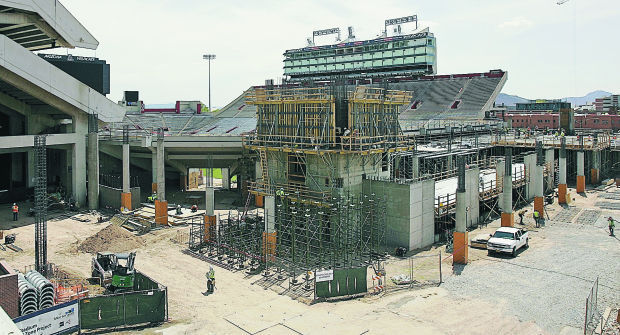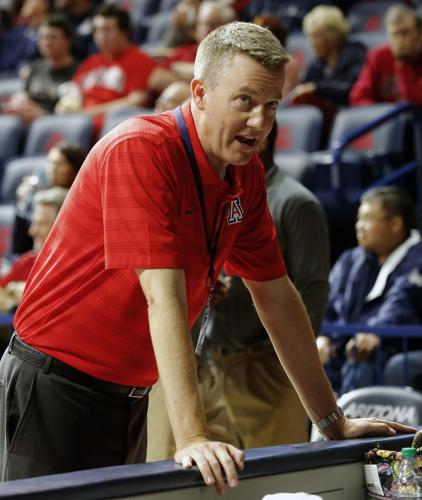Some University of Arizona students are pushing back against a proposed new $200-a-year fee to help pay for upgrades to the school’s aged football stadium.
More than 1,200 graduate and professional students overwhelmingly rejected the mandatory fee proposal recently put forth by UA athletics director Greg Byrne.
Sarah Netherton, president of the UA’s Graduate and Professional Student Council, said 94 percent of respondents to the council’s recent poll were opposed or strongly opposed to the new fee.
Grad students typically are cash-strapped and “most objected for financial reasons,” Netherton said.
Joe Zanoni, a senator with Associated Students of the University of Arizona said he’s “getting lots of negative feedback” on the proposal, and is working on plans to poll the UA’s entire student body to gauge the level of support.
Byrne acknowledges that students have “mixed opinions” about the proposal, which would need approval from UA President Ann Weaver Hart and the Arizona Board of Regents, which oversees the state’s public university system
The new fee would help fund an expected $150 million in renovations to Arizona Stadium, built in 1928. If approved, the fee would not affect current students, but would be phased in as newcomers begin their studies.
“We didn’t think it was fair to ask existing students to pay when they didn’t sign up for that,” Byrne said.
Most Pac-12 schools already charge an athletics fee. Arizona State University started charging its students a $150 fee last school year.
UA students now pay about $1,000 a year in fees toward items such as tutoring, wireless access and digital library offerings. Byrne’s proposal would amount to a 20 percent increase in total fees.
The athletics fee, if approved, would mark a significant departure for the UA athletics department, where officials have long prided themselves on the financial self-sufficiency of the school’s sports enterprise. Byrne said he’s turning to UA students for help because the stadium is in dire need of renovation and repair.
The building has shabby restrooms, subpar seating and concession facilities and narrow hallways prone to overcrowding, all problems that detract from the UA’s status as a top-notch university, he said.
Stadium improvements would help the UA attract high-caliber athletes, provide a better fan experience, and make the stadium a source of pride for alumni and donors, he said.
The athletics department has raised tens of millions of dollars in donations in recent years to improve other sports sites such as McKale Center and the Lowell-Stevens Football Facility, but the magnitude of work needed at Arizona Stadium can’t be funded by private donations alone, Byrne said.
Besides the new student fees, the school would hike football ticket prices by 14 to 18 percent and raise $50 million in donations for the stadium work.
UA students could attend sporting events for free in exchange for their investment, the athletics director said. But not all students care about sports, so the offer of free access on game days is of no benefit to them, noted Netherton, the graduate student council president.
Hart, the university president, said she values the perspectives of student leaders, but wouldn’t say whether she would consider approving a fee that student groups were opposed to.
She also noted that the final details of the fee plan are subject to change.
“No decision has been made about what form a fee might take. It could be applied to all students or just certain groups; there could be an opt-out provision for some and not for others; its approval could require a sunset provision or a plan including philanthropy and a ticket surcharge, or some combination of provisions,” Hart said in an email.
“There are many variations a fee could take, and I expect all possibilities will be debated.”
The Board of Regents typically sets tuition and fees in the spring.





